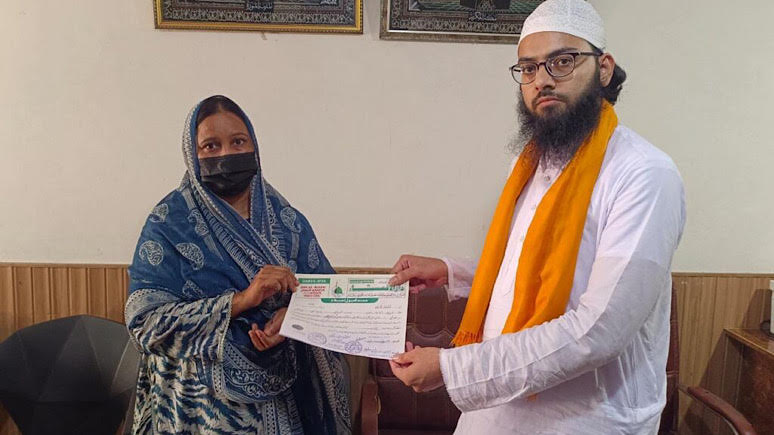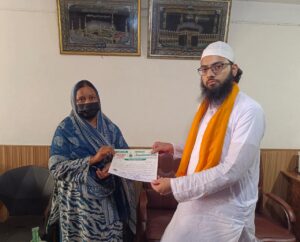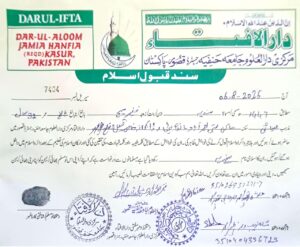


[Craving even more FPM content? Sign up for FPM+ to unlock exclusive series, virtual town-halls with our authors, and more. Click here to sign up.]
In Pakistan, there is a deep sense of despair and helplessness regarding the protection of underage girls belonging to religious minorities. Girls from Christian and Hindu communities are repeatedly subjected to forced religious conversion, abduction, trafficking, child marriage, and sexual violence.
The tragedy is that despite this alarming situation, neither the religious seminaries and institutions involved in these crimes are banned, nor is any meaningful action taken against those who, while receiving funds from Western countries, spread false narratives in the name of minority rights.
It is an unbearable reality that underage girls from religious minorities are:
In such cases, an atmosphere of fear and intimidation prevails to the extent that even courts turn a blind eye to these crimes. At times, citing Islamic laws, these underage girls are handed over to their abductors instead of being returned to their parents a practice that raises serious questions about the justice system.
State Inaction and Judicial Silence
Those involved in these crimes often escape accountability, and in many cases, the police deliberately close files by labeling forced marriages as “love marriages.” This practice inflicts severe suffering on the victims and their families.
Legal and Moral Imperatives
It is a woman’s fundamental human right to choose marriage of her own free will, and it is the state’s responsibility to protect that right.
Need for Legal Reforms and Justice
International Responsibility
Until Pakistan takes genuine steps to protect its minorities, its commitment to international human rights obligations will remain nothing more than a paper claim.
Forced Religious Conversion in Kasur: A Silent Tragedy
The central Darul Uloom Jamia Hanfia (registered) in Kasur known as “Markaz Ahl-e-Sunnat” has long been involve in systematic forced conversions targeting religious minorities, particularly the Christian community.
Its chief administrator and the custodian of Khanqah Alia Qadriya Ashrafia, Sahibzada Pir Mufti Muhammad Hasan Ali Qadri Ashrafi, has been coercing dozens of Christian boys and girls into converting to Islam.
According to available investigative information, between 2014 and 2025, at least 835 Christian boys and girls have been forcibly converted to Islam through various means. This is an organized, ongoing process with strong evidence of financial backing.
Financial Network and Funding
Up until 2018, the institution “Darul Uloom Jamia Hanfia” (Old Bus Stand, Kasur), under Mufti Hasan Ali Qadri Ashrafi, received millions of rupees from various sources into Account No. 2000065 at the National Bank of Pakistan, Main Branch Kasur (Branch Code: 0348).
Subsequently, these funds were transferred to another account in his son’s name:
Allied Bank, Branch Code: 0539, Kot Abdul Qadir, Kasur
Account No: PK92ABPA0010038347410017
The funds are used for anti-Christian campaigns, forced conversions, and extremist activities.
Some Recent Incidents
Kasur: A Hub of Jihad Activity
Kasur city, just 57 kilometers from Lahore, is becoming one of the most dangerous places for Christians. Historically, the region has been a haven for hate, prejudice, and religious extremism against Christians.
Furthermore, Christian families working on local brick kilns have been forced to live in conditions akin to generational slavery, with very little attention given to their plight.
Why the Silence?
It is tragic that no prominent Christian leader is speaking out against the horrific activities taking place at Darul Uloom Jamia Hanfia, Kasur. Despite the grave nature of crimes like forced religious conversion, the major leadership of Pakistan’s Christian community remains silent spectators.
How Do NGOs Cunningly Influence the Legislative Process and Foreign Funding?
A Case Study on the Child Marriage Restraint Bill in Pakistan
In the world of human rights and advocacy, many NGOs claim to work tirelessly for marginalized communities. But not every effort is as transparent as it appears especially when foreign funding collides with the murky, complex world of political lobbying.
Between 2022 and 2023, a controversial trend emerged among organizations working for minority rights in Pakistan, particularly Christian minorities. One key example is the Child Marriage Restraint Bill, aimed at criminalizing child marriage.
Drafting for Dollars?
In 2023, a draft of this bill was prepared by Rubina Feroze Bhatti, Secretary of the Pakistan Partnership Initiative and Executive Director of the NGO TANG Wasib. She handed this draft to Christian Member of the National Assembly, Naveed Amir Jeeva, so he could table it in parliament.
This was not Rubina Bhatti’s first attempt. Previously, she had pushed a similar bill through Senator Kamran Michael (Another Christian politician from PLMN), but both efforts failed to make any progress in parliament. These repeated failures raise serious questions about the legislative strategy and the true intent behind the initiatives.Interestingly, the bill was eventually introduced and passed by Sharmila Faruqi, who is neither Christian nor affiliated with these organizations. This suggests that the earlier attempts may have been purely symbolic or deliberately set up to fail perhaps to show foreign donors that “efforts were made” without actually letting the bill pass right away.
Deceiving Donors?
This case illustrates how some NGOs secure foreign grants for legislative reform but fail to produce meaningful results. Instead, they create an artificial impression of impact by:
Such tactics raise serious ethical concerns about transparency, accountability, and misleading donors.
Islamabad Capital Territory Child Marriage Restraint Bill, 2025
While the passage of the Islamabad Capital Territory Child Marriage Restraint Bill, 2025, may appear to be a progressive step, for Pakistan’s vulnerable Christian and Hindu communities it is, in reality, an empty gesture. This law applies only to Islamabad a city where incidents of forced conversion to Islam and systemic child marriages are virtually nonexistent. Meanwhile, the real crisis unfolds daily in Sindh, Punjab, Khyber Pakhtunkhwa, and Balochistan, where countless minor Christian and Hindu girls are abducted, forcibly converted to Islam, and married to their captors under the cover of Islam and culture.
By limiting this legislation to the capital, politicians have chosen the path of hypocrisy and symbolism instead of courage and justice. They showcase reform where it is least needed while avoiding confrontation with powerful religious lobbies and jihad networks that operate with impunity in the provinces. This selective lawmaking sends a dangerous message: the lives and dignity of minority girls in rural Pakistan are expendable for political convenience.
I demand immediate provincial-level reforms that criminalize and prevent child marriage and forced conversion across Pakistan. Laws must be backed by enforcement mechanisms, victim protection programs, and a judiciary willing to hold perpetrators no matter how influential accountable. The question remains: who in Pakistan’s leadership dares to challenge the systemic forces that prey upon Christian and Hindu girls? Until that question is answered with action, this bill will remain nothing more than a hollow document of misplaced priorities.
In Pakistan, the abduction and forced conversion of Christian and Hindu girls remains a weapon of oppression, as grieving mothers cry, ‘We do not give birth to daughters for conversion to Islam,’ while the courts turn a blind eye and justice is denied.”


